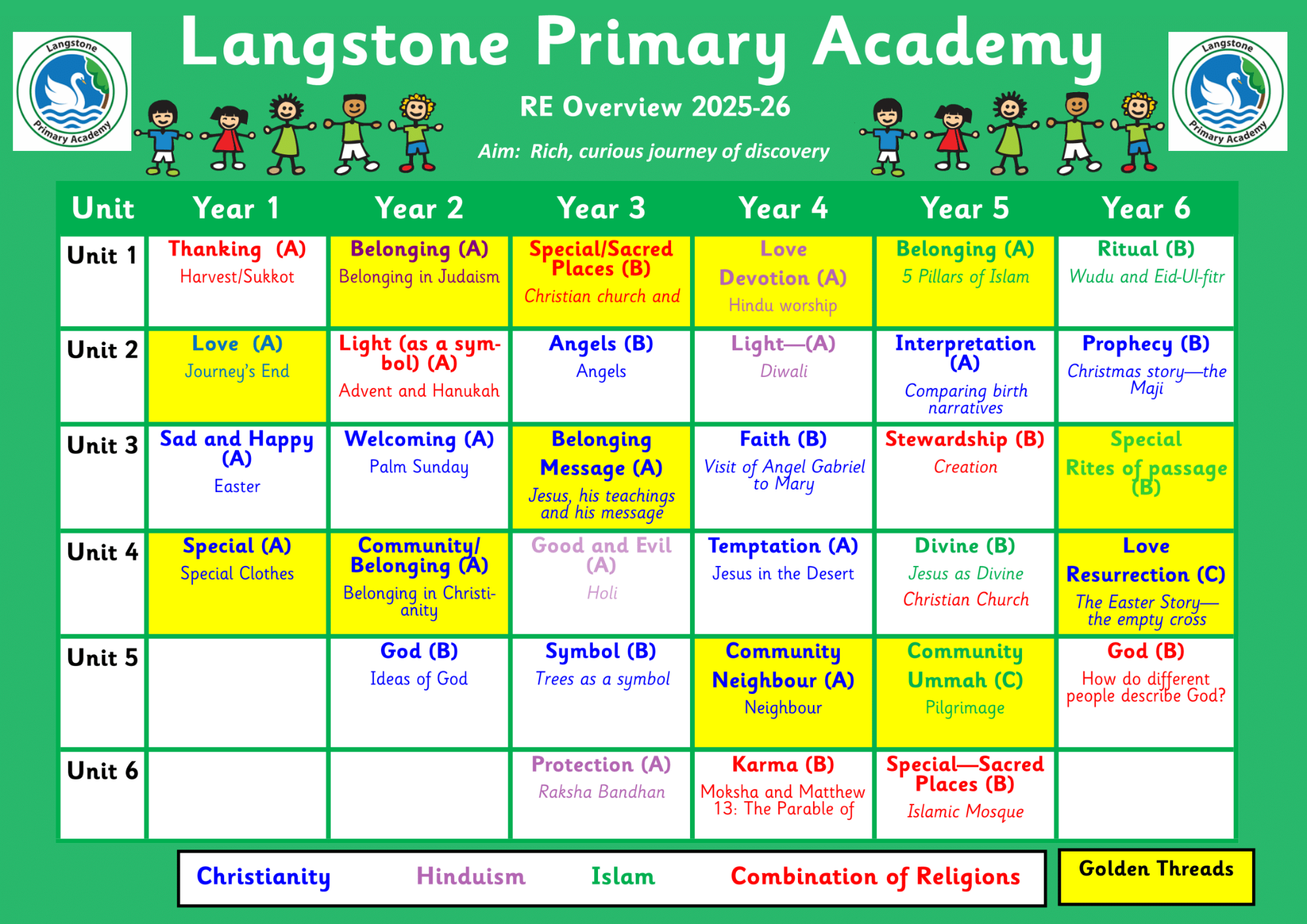Religious Education
Intent
Our vision is to build children’s spirituality, sense of identity and belonging, which will help them flourish within their communities and as citizens in a diverse, changing society. Pupils will think and grow together to develop respect and care for others, including people with different faiths and beliefs and to challenge prejudice.
In order to achieve this, we will:
- Providing the opportunities for immersive experiences in diverse cultures and religions through challenging questions, about their own and other people’s beliefs, issues of right and wrong and understanding the world around them from all perspectives. Because it provides children with the cultural capital to develop their knowledge and understanding of Christianity, as well as other principal religions, and religious traditions that examine these questions, fostering personal reflection and spiritual development.
- To encourage pupils to explore their own beliefs (whether they are religious or non-religious), and how these impact on personal, institutional and social ethics; and to express their personal responses. Because this builds resilience to anti-democratic or extremist narratives while providing an opportunity for developing their own spirituality and beliefs.
- To provide links to PSHE and to allow philosophical discussions around religions and people’s beliefs. Because we have found that collaborative philosophical inquiry has marked positive effects on pupils. Through lessons like P4C and PSHE teachers, can help to build a community of enquiry within the classroom which provides children with the opportunities to think openly, clearly and rigorously and to communicate successfully with each other in a caring and collaborative manner.
To provide opportunities, where possible, to have first-hand experiences of other religions and people leading a religious life. Because it supports children in developing their own opinions and deepens their understanding of how faith is practiced in a range of ways by a variety of people. It also promotes the children’s engagement and enjoyment of the subject.
By the end of EYFS, children will:
- be aware that people have different beliefs and celebrations to them.
- begin to develop an understanding that people have different celebrations depending on their beliefs.
- talk about some celebrations and notice similarities and differences.
By the end of KS1, children will:
- understand the key teachings of Christianity and Judaism and how they link to each other.
- think about the day to day lives of Christians and Jewish people.
- reflect on how people have different views and beliefs to them and understand that we live in a multifaith society.
- understand that religion can play an important role in the lives of people.
- demonstrate mutual respect and tolerance of the diverse community that we live in.
- recognise how key concepts of religions are imbedded across all religions and belief systems as well as other curriculum areas.
By the end of KS2, children will:
- understand the key teachings of Christianity, Hinduism and Islam and be able to make links between them and other religions.
- discuss their own personal reflections on Christianity, Hinduism and Islam and begin to explain their meanings and purpose.
- explore the day to day lives, beliefs, values and practices of Christians, Hindus and Muslims.
- describe how books, scriptures, readings and other important means of communication are used to convey beliefs, values and practices.
- know how religion can play an important role in the lives of some people and an understanding of the value of religion.
- reflect on how people have different views and beliefs to them, including a nonfaith perspective and will understand that we live in a multi-faith society.
- demonstrate mutual respect and tolerance of the diverse community that we live in.
- recognise how key concepts of religions are imbedded across all religions and belief systems as well as other curriculum areas.

